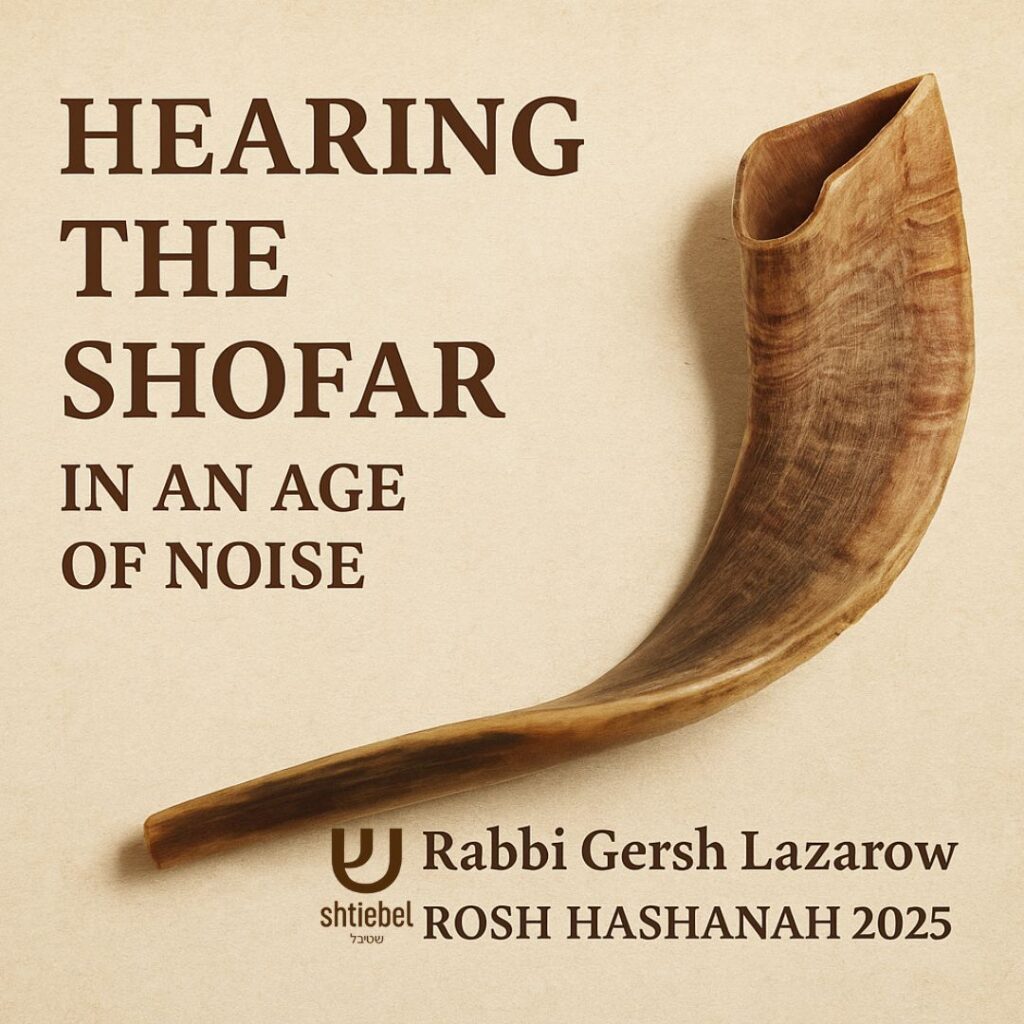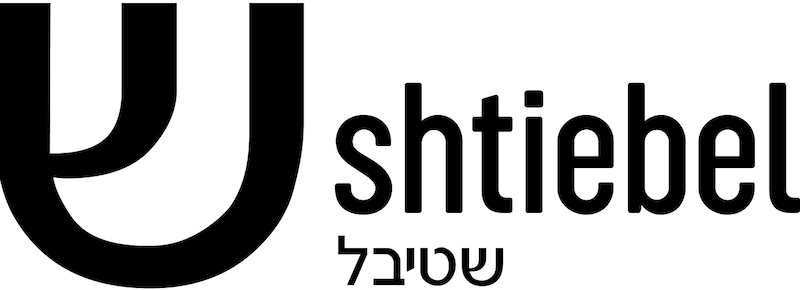This blog is adapted from the Rosh Hashanah sermon I delivered at Shtiebel.

We live in an age of noise.
Not the background hum of the city, or the neighbour who won’t stop talking, or even the fidgeting that fills a crowded hall. The noise I mean is the kind that never lets us rest.
The constant, endless stream of headlines, alerts, arguments, and opinions.
Noise when we wake.
Noise when we work.
Noise even when we try to sleep.
Most of us know it all too well. The moment we wake in the morning, before we’ve even said good morning to the people we love, we reach for the phone. And then we scroll. Headline after headline, video after video, argument after argument. We put the phone down not wiser, just wearier. Not safer, just more anxious.
And beyond the news are the echo chambers we create for ourselves. Online. In our friendship circles. Even in our families. At first they feel safe, but soon they narrow us. Those who think differently become wrong, even dangerous. And in those chambers, anger is amplified. Fear is amplified. Suspicion is amplified. Until all we can hear is the noise.
Here’s the truth: none of us can make sense of all of it. The world is too fractured, too complex, too loud for neat explanations.
But maybe Rosh Hashanah invites us to ask different questions.
Not “What’s happening out there?” but “What’s happening in here?”
Not “How do we stop the noise?” but “How do we stop it from reshaping us?”
And that is where the shofar comes in.
The shofar is not music. No melody, no harmony, no words. Just a raw, ancient cry. The rabbis taught that it has three voices: tekiyah — the steady call of clarity, shevarim — the sighs of brokenness, and teruah — the urgent staccato cry. Clarity, brokenness, urgency. That is not only ritual — it is our lives right now.
I was reminded of a story this week. A rabbi once asked his students to meet him in the forest before dawn. They stood waiting, tired and cold, when the first birds began to sing. One, then another, until the whole forest filled with sound.
“Do you hear them?” the rabbi asked.
“Yes,” the students replied.
“But when did you first begin to hear?”
They realised they had only noticed once the noise became too loud to ignore. The first quiet notes had passed them by.
That, said the rabbi, is why we need the shofar. Life is always sending us signals — hints, truths, possibilities. But we only notice when it’s too loud to ignore. The shofar is here to wake us sooner.
So what is essential?
Not more anger.
Not more fear.
Not more suspicion.
What is essential is goodness.
What is essential is kindness.
Rav Kook taught that the broken notes of the shofar are the cracks through which new light enters. Out of brokenness comes the possibility of new harmony — but only if we choose what we will amplify.
So what will you amplify this year? The noise of rage and cynicism? Or the steadier notes of kindness, hope, and truth?
Rabbi Jonathan Sacks once wrote: “Hope is not optimism. Optimism is the belief that things will get better. Hope is the belief that together we can make things better.”
The shofar is not a promise that the world is already good. It is a call to make it better.
Hayom harat olam. Today is the birthday of the world. Pregnant with possibility.
But what will we make of it?
